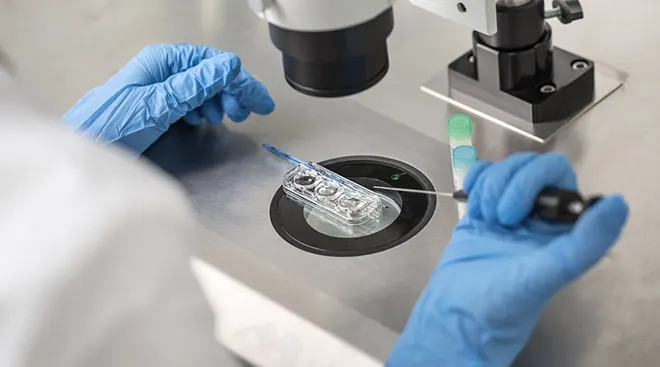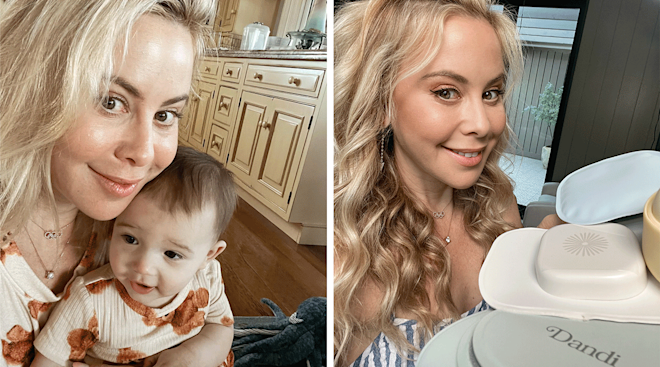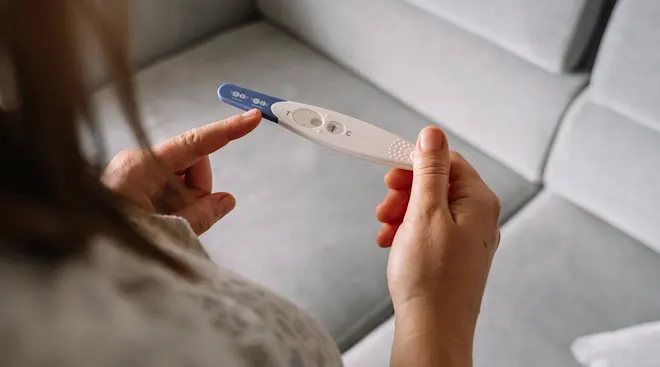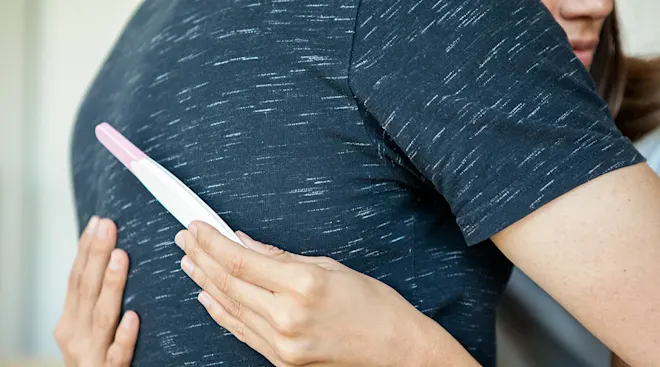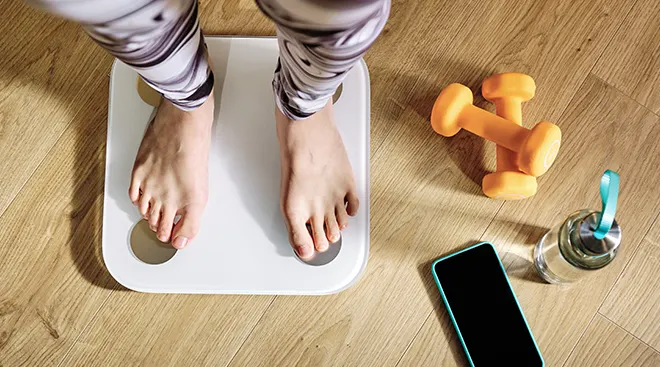10 Ways Your Home Is Making You Infertile
Your Walls
Exposure to glycol ether, a solvent found in certain water-based paints, varnishes, thinners and stains, can disrupt your menstrual cycle or even cause a miscarriage. It can also diminish sperm quality.
What you can do: If you’re planning to do any painting or to refinish any furniture, avoid using paints, stains, varnishes, etc. that contain glycol ether.
Your Bed
Although flame retardants used on mattresses, sofa cushions and carpet padding are meant to keep you safe, they may not be a safe bet if you’re trying to conceive. The chemicals in flame retardants can be absorbed into your bloodstream, and high levels of such chemicals have been linked to damaged sperm in men and trouble conceiving in women.
What you can do: Although the two most commonly used flame-retardant compounds were banned in 2004 (so if you bought your mattress after that, you’re probably fine), when buying new furniture, opt for pieces made of organic cotton, wool and latex, and avoid anything with a tag that says: “Complies with California TB117” (the law requiring furniture to be flame-retardant).
Soap
Sure, it’s touted as the supreme germ killer, but antibacterial soap can also kill your chances of conceiving. Antibacterial soaps, as well as some shampoos, dishwashing liquids and even some toothpastes, may contain triclosan — a chemical linked to endocrine disruption that may mess up your hormones and interfere with your reproductive system. And men aren’t off the hook either: Triclosans could also be responsible for decreasing your partner’s sperm count.
What you can do: Check the ingredient lists for any soaps, shampoos, dish soaps and toothpastes you buy, and steer clear of any containing triclosans. Some triclosan-free options: Seventh Generation (SeventhGeneration.com) dish soaps and cleaners, and Tom’s of Maine toothpaste (TomsofMaine.com); you can go to EWG.org to find more.
Canned Food
BPA, or bisphenol A, is a chemical often found in hard plastics, including those used to make many microwave-safe food containers and water bottles, as well as in the linings of aluminum cans and, surprisingly, receipt paper. Studies have found that the higher the levels of BPA in men’s urine, the lower their sperm count. A study also found that women with twice as much BPA in their bloodstreams had half as many viable eggs, and other research has shown a link between BPA levels and polycystic ovary syndrome (which can lead to infertility).
What you can do: Avoid canned foods and plastic containers with the recycling symbols No. 3 and No. 7 at the bottom, and wash your hands after touching receipts and money (since BPA can rub off receipts and onto your hands and cash).
Shower Curtain
Your shower curtain liner gets its soft plastic bendability from phthalates — and that’s a problem. Men with lower sperm counts, as well as those with damaged sperm, have been found to have phthalates in their blood. These chemicals may also be connected to endometriosis, a condition that can lead to infertility in affected women.
What you can do: Unfortunately, phthalates are found in many plastics, plus in nail polishes, vinyl shower curtains, vinyl tiles, caulk and building materials. Replace vinyl floors, shower curtains and products. An use glass containers instead of plastic when eating or drinking anything hot and when warming food in the microwave, as heat can cause these chemicals to leak into your food.
Nonstick Pots and Pans
Nonstick pans may be convenient for cleaning, but not for conceiving. The nonstick coating contains the chemical perfluorooctanoic acid (PFOA), which has been linked to reproductive problems. In fact, data shows that women with higher levels of PFOA in their blood had a harder time getting pregnant. And when they do conceive, studies have found that babies born to women with higher levels of PFOA in their blood are less likely to meet important developmental milestones.
What you can do: Replace any Teflon pans, but also steer clear of other sneaky PFOA-containing products, like conventional microwave popcorn bags.
Laptops
Researchers have found that men who rest laptops on their laps while using them have higher scrotal temps, which may decrease sperm production and have a negative affect on the production of healthy sperm.
What you can do: Tell your guy to rest his computer on a desk or table.
The Faucet
Chemicals entering the water supply might be behind the rise in male fertility problems. A study showed that chemicals found in medicines, including cancer drugs, as well as pesticides that enter our water supply (even in trace amounts), may reduce male fertility by inhibiting the function of testosterone.
What you can do: Use a water filter to help reduce the amount of chemicals you and your partner are exposed to.
Carpet
Pesticides that you can drag into your home on your shoes, as well as perfluorochemicals (PFCs) contained in the padding of some carpets, may be linked to female infertility. Women with higher levels of these chemicals in their blood took longer to get pregnant than those with lower levels. Researchers believe the chemicals may have a toxic affect on the developmental and reproductive organs, and could also affect sperm quality.
What you can do: Take your shoes off when you enter the house to avoid dragging pesticides containing PFCs into the house, and avoid replacing carpet while trying to conceive.
Laundry Detergents
Chemicals found in detergents can disrupt a woman’s normal menstrual cycle and cause miscarriage in pregnant women, in addition to possibly affecting semen quality.
What you can do: Switch from petroleum-based detergents to vegetable-based, fragrance-free detergents, which contain fewer chemicals. Also, ditch products that contain parabens, phthalates or formaldehyde in favor of more natural, preservative-free alternatives (check out SeventhGeneration.com for conception-friendly detergents).
Experts: Dr. Myron Wentz and Dave Wentz, authors of The Healthy Home: Simple Truths to Protect Your Family From Hidden Household Dangers
Find natural ways to boost your fertility here.
Trying to conceive? Get answers to all your questions.
Please note: The Bump and the materials and information it contains are not intended to, and do not constitute, medical or other health advice or diagnosis and should not be used as such. You should always consult with a qualified physician or health professional about your specific circumstances.
Navigate forward to interact with the calendar and select a date. Press the question mark key to get the keyboard shortcuts for changing dates.

































